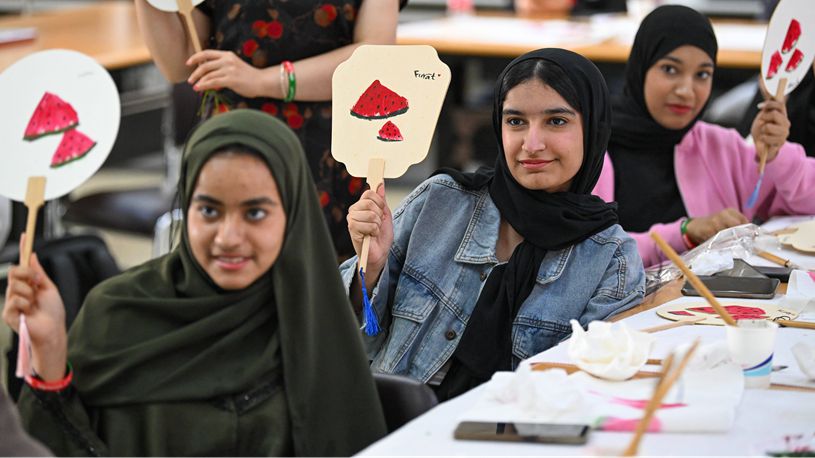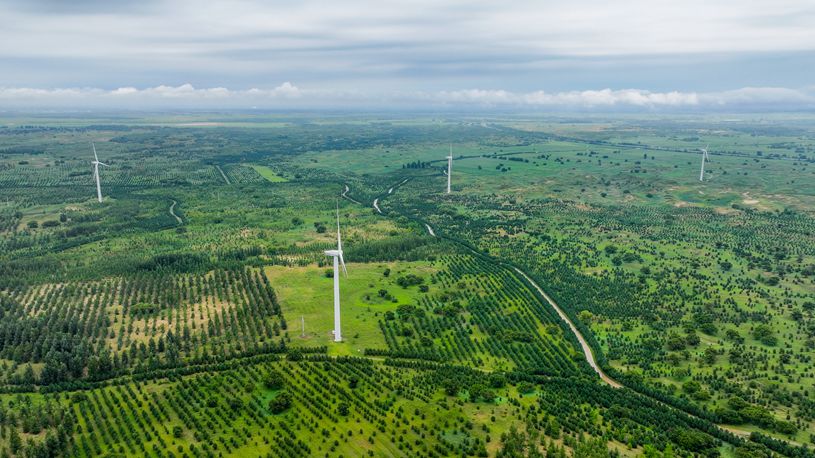Roundup: WHO declares mpox global health emergency amid new variant, alarming spread
Source: Xinhua
Editor: huaxia
2024-08-16 12:13:15
"We are not dealing with one outbreak of one clade; we are dealing with several outbreaks of different clades in different countries with different modes of transmission and different levels of risk," said WHO director-general on Wednesday.
KINSHASA, Aug. 16 (Xinhua) -- The World Health Organization (WHO) declared Wednesday mpox a public health emergency of international concern (PHEIC), activating its highest level of global alert for mpox for the second time in two years, amid an increasing number of cases of a deadlier new variant reported across and outside Africa.
AN INTERNATIONAL EMERGENCY
Since the beginning of 2024, 15,664 potential cases of mpox, formerly known as monkeypox, and 548 deaths have been reported in the Democratic Republic of the Congo (DRC), the country most affected by the disease and in the middle of an outbreak since late 2022, DRC Health Minister Roger Kamba announced late Thursday.
In December 2022, the DRC declared a national outbreak of mpox, and an incident management system has been in place since February 2023, based on the increasing number of reported cases.
According to the DRC minister, all provinces of the country are currently affected by the virus, including several border provinces with neighboring countries such as Burundi, Rwanda, and Uganda, where cases have also been reported. According to the African Centers for Disease Control and Prevention (CDC Africa), at least 16 countries have been affected.
In a report published in May 2024, the WHO warned that the current mpox outbreak in the DRC is "extremely concerning" due to the sustained increase in suspected cases compared to previous years, with a significant burden on younger populations, particularly children under 15, who make up the majority of suspected cases and deaths.
The WHO declared on Wednesday that mpox constitutes a public health emergency of international concern, raising alarms about its potential for increased global transmission, for the second time since 2022.
The WHO's declaration came after the CDC Africa declared that the ongoing mpox outbreak constituted a public health emergency for the continent. The number of new mpox cases in 2024 increased by 160 percent compared to the same period in 2023, the CDC Africa reported.
A PHEIC is the highest level of alarm under international health law, WHO Director-General Tedros Adhanom Ghebreyesus said. "This is something that should concern us all ... The potential for further spread within Africa and beyond is very worrying."
DEADLIER NEW VARIANT
According to the WHO, the current outbreak, spreading from the DRC, has been exacerbated by the emergence of a deadlier new variant of the virus, Clade 1b, with a mortality rate estimated at 3.6 percent, much higher than previous strains.
"We are not dealing with one outbreak of one clade; we are dealing with several outbreaks of different clades in different countries with different modes of transmission and different levels of risk," said the WHO director-general in his opening address at the emergency committee meeting late Wednesday.
The new variant has been detected in the DRC eastern province of South Kivu, and it is estimated to have appeared around mid-September 2023, the WHO said in a report. In July, over 100 laboratory-confirmed cases of Clade 1b have been reported in four countries neighboring the DRC that have not reported mpox before, namely Burundi, Kenya, Rwanda, and Uganda. Experts believe the true number of cases is higher as a large proportion of clinically compatible cases have not been tested.
In 2022, a worldwide outbreak, notably in Europe and the United States, which prompted the WHO to declare a public health emergency, was caused by the Clade II variant with a relatively low death rate.
"The emergence of a new clade of mpox, its rapid spread in eastern DRC, and the reporting of cases in several neighboring countries are very worrying. On top of outbreaks of other mpox clades in DRC and other countries in Africa, it's clear that a coordinated international response is needed to stop these outbreaks and save lives," said Tedros.
The WHO is boosting its support to affected countries by deploying additional experts, including epidemiologists and anthropologists, and providing initial funding to accelerate outbreak response measures. It also initiated the process for Emergency Use Listing of mpox vaccines, which will expedite vaccine access for low-income countries that have not yet granted national regulatory approval.
SPREAD OUTSIDE AFRICA
On Thursday, Sweden confirmed it had identified the first case of the new mpox variant, marking the first appearance of Clade 1b outside the African continent.
Swedish health agency noted that, unlike the previous variant which mainly spread through sexual contact, Clade I is now spreading primarily through household contacts and frequently infects children. According to the WHO, other imported cases of mpox are likely to be detected soon in Europe.
In April 2024, a high-level regional emergency meeting on mpox in Africa was convened in Kinshasa, the capital of the DRC, bringing together 12 health ministers from the region to develop joint strategies for preventing and effectively responding to the disease in Africa.
"We must prevent the DRC from becoming the source of cross-border transmission, and our partnership must prioritize the health of those affected," said Jean Kaseya, director-general of CDC Africa, at the meeting.
"We are working tirelessly on the front lines of the response, collaborating closely with governments and communities to strengthen disease control measures and intensify our efforts to curb the spread of the virus through coordinated action with partners and national authorities," said Matshidiso Moeti, WHO regional director for Africa, in a statement on Thursday.
Monkeypox, first detected in laboratory monkeys in 1958, is assumed to be transmitted from wild animals such as rodents to people, or from human to human.
According to WHO, endemic mpox disease is normally geographically limited to West and Central Africa. The identification of confirmed and suspected cases of the virus without any travel history to an endemic area in multiple countries is atypical. ■











Comments